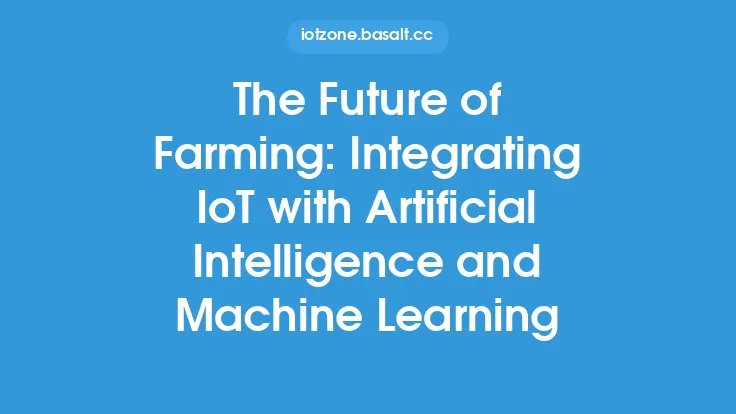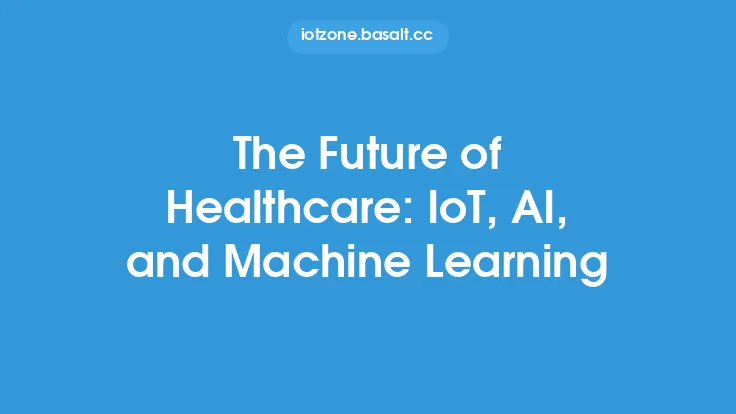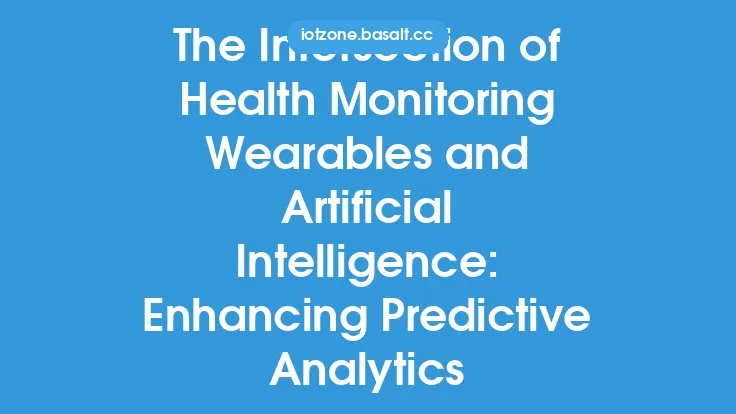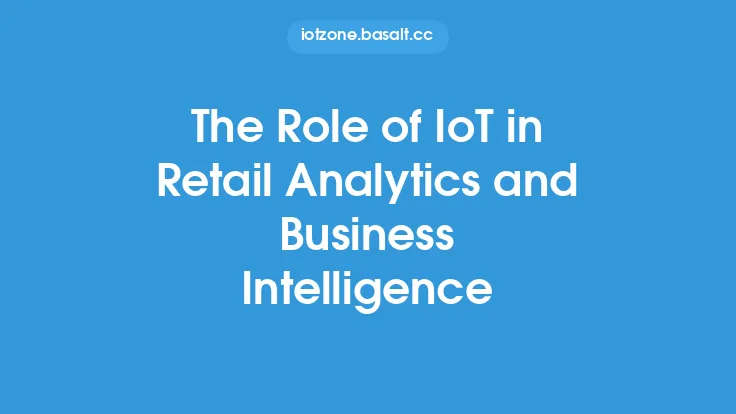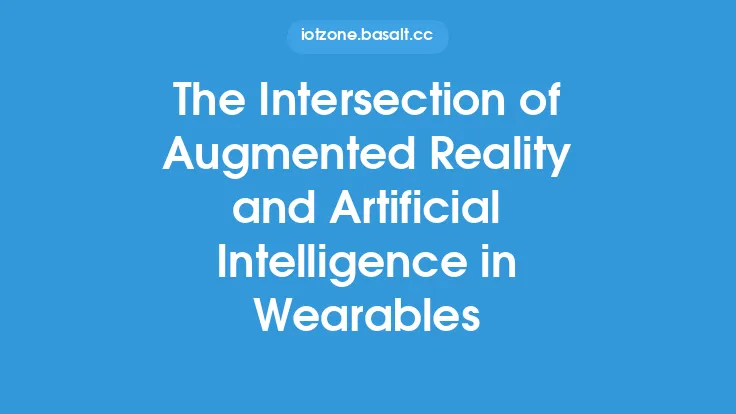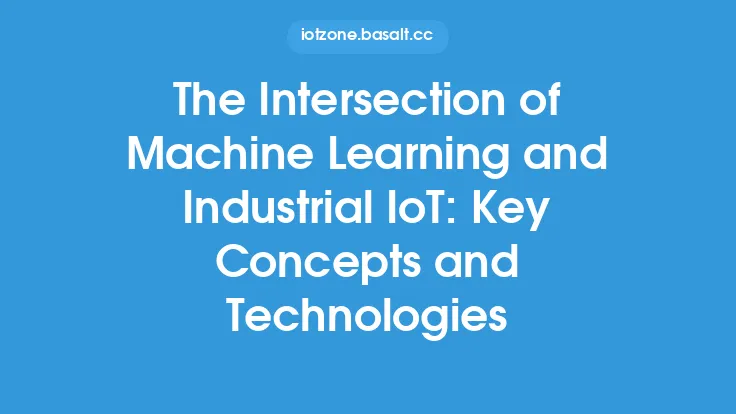The retail industry has undergone significant transformations in recent years, driven by advances in technology and changing consumer behaviors. One of the key drivers of this transformation is the integration of the Internet of Things (IoT) with artificial intelligence (AI) and machine learning (ML). This convergence of technologies has the potential to revolutionize the retail industry, enabling businesses to create more personalized, efficient, and immersive shopping experiences for their customers.
Introduction to IoT, AI, and ML in Retail
IoT refers to the network of physical devices, vehicles, home appliances, and other items that are embedded with sensors, software, and connectivity, allowing them to collect and exchange data. In the retail context, IoT devices can include sensors, cameras, and RFID tags that track inventory, monitor store conditions, and analyze customer behavior. AI and ML are technologies that enable computers to learn from data, identify patterns, and make decisions without human intervention. By integrating IoT with AI and ML, retailers can analyze vast amounts of data from various sources, gain insights into customer behavior, and optimize their operations to improve customer satisfaction and loyalty.
Technical Architecture of IoT, AI, and ML Integration
The technical architecture of IoT, AI, and ML integration in retail involves several components, including data ingestion, processing, and analytics. IoT devices generate vast amounts of data, which is ingested into a data lake or a cloud-based platform. The data is then processed using big data analytics tools, such as Hadoop or Spark, to extract insights and patterns. AI and ML algorithms are applied to the processed data to build predictive models, classify customer behavior, and identify trends. The output of these models is then used to inform business decisions, such as inventory management, pricing, and marketing. The technical architecture also involves the use of edge computing, which enables real-time processing of data at the edge of the network, reducing latency and improving responsiveness.
Applications of IoT, AI, and ML in Retail
The integration of IoT, AI, and ML has numerous applications in retail, including personalized marketing, inventory management, and supply chain optimization. For example, retailers can use IoT sensors to track customer behavior, such as dwell time and path to purchase, and use AI and ML to analyze this data and create personalized marketing campaigns. Similarly, retailers can use IoT devices to track inventory levels, and use AI and ML to predict demand and optimize inventory management. Additionally, retailers can use IoT sensors to monitor store conditions, such as temperature and humidity, and use AI and ML to optimize energy consumption and reduce waste.
Benefits of IoT, AI, and ML Integration in Retail
The integration of IoT, AI, and ML in retail offers numerous benefits, including improved customer experience, increased operational efficiency, and enhanced competitiveness. By analyzing customer behavior and preferences, retailers can create personalized shopping experiences that drive loyalty and retention. Additionally, the use of IoT, AI, and ML can help retailers optimize their operations, reduce costs, and improve supply chain efficiency. The integration of these technologies can also enable retailers to respond quickly to changing market conditions, such as shifts in demand or supply chain disruptions.
Challenges and Limitations of IoT, AI, and ML Integration in Retail
Despite the benefits of IoT, AI, and ML integration in retail, there are several challenges and limitations that retailers must address. One of the key challenges is the complexity of integrating multiple technologies and systems, which can be time-consuming and costly. Additionally, retailers must ensure that they have the necessary infrastructure and expertise to support the integration of IoT, AI, and ML. There are also concerns about data privacy and security, as the use of IoT devices and AI and ML algorithms can generate vast amounts of sensitive data. Furthermore, retailers must ensure that they have a clear understanding of the business value of IoT, AI, and ML integration, and that they have a well-defined strategy for implementing these technologies.
Future Directions and Opportunities
The future of retail is likely to be shaped by the continued integration of IoT, AI, and ML. As these technologies evolve, we can expect to see new applications and use cases emerge, such as the use of augmented reality and virtual reality to create immersive shopping experiences. Additionally, the use of IoT, AI, and ML is likely to become more pervasive, with retailers using these technologies to optimize every aspect of their operations, from supply chain management to customer service. There are also opportunities for retailers to use IoT, AI, and ML to create new business models, such as subscription-based services and data-driven consulting. As the retail industry continues to evolve, it is likely that the integration of IoT, AI, and ML will play a key role in shaping the future of retail.
